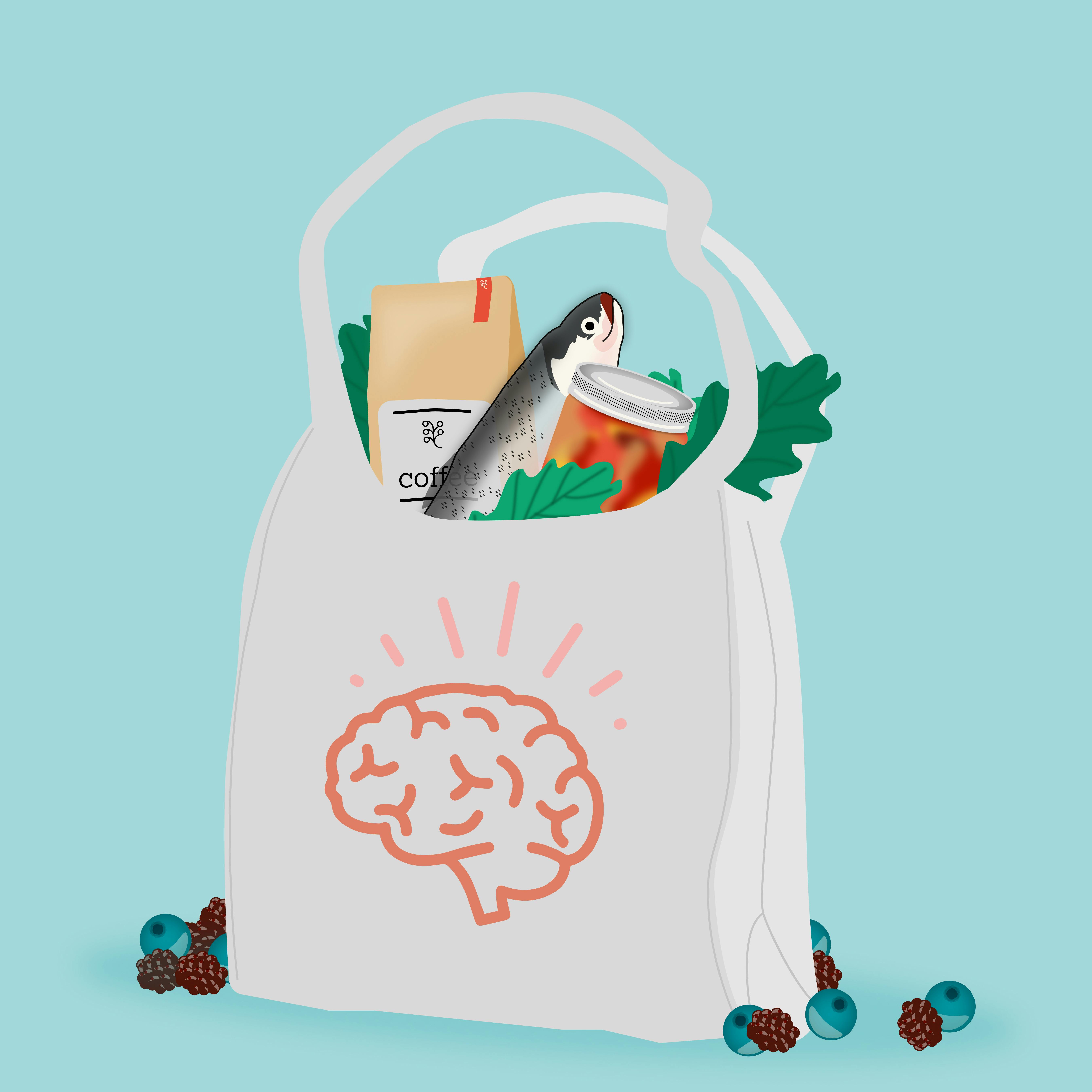
Eat Smart. The Best Foods for Your Brain.
By Danielle McAvoy, MSPH, RD
June 10, 2022
The saying “you are what you eat” doesn’t only apply to 6-pack abs, clear skin, and toned muscles. Food has a profound effect on your brain too, and what you eat directly affects your happiness, motivation, and productivity.
Your brain works 24 hours a day, 7 days a week for your entire life without a moment of rest. It controls your breathing, heartbeat, movement, thoughts, moods, and emotions.
A high-quality diet nourishes the brain-boosting cognitive power, making you feel energized, motivated, positive, and focused. Long term, eating right can mean you’re less likely to lose your memory or feel depressed.
On the other hand, a diet high in processed foods and low in nutrients will leave you feeling tired, unmotivated, anxious, and foggy, and can actually damage your brain. Processed foods high in refined oils and sugars cause inflammation that has been linked to impaired brain function and depression.
If you want to get fit, learn a new skill, improve your performance at work, or reduce stress, focus on your brain health. It’s difficult to achieve a goal when you’re not motivated or thinking clearly.
Here are the top 5 foods to eat to maximize brain health and productivity:
1. Adaptogens, or herbs and foods that act like “stress vaccines.” Turmeric, moringa, licorice root, nettles, and functional mushrooms such as Lion’s Mane and reishi can help reduce cortisol levels. Less stress means better focus and attention, less mental fatigue and anxiety, and a generally healthier brain.
2. Berries are packed with antioxidants that help clean up cell damage in the brain. Blueberries in particular have been shown to improve memory, cognitive function, and significantly slow the effects of aging on the brain.
3. Caffeinated beverages like tea, coffee, and other sources of caffeine offer more than just a temporary concentration boost. Caffeine helps the brain solidify new memories and speeds up information processing. Research has found that this effect lasts well beyond finishing the cup and increases the brain’s capacity to process information even at rest. The result is improved cognitive performance. Other studies have found that caffeine protects against the toxins that build up in the brain during the day while we are awake.
4. Fermented foods such as kombucha, yogurt, kimchi, and miso help balance the gut bacteria, which directly impacts brain health. Serotonin, the happiness chemical, is produced mainly by gut bacteria, which means your gut regulates your mood. A growing body of research has shown that fermented foods can improve brain function by influencing the production of neurotransmitters. High-fiber foods like vegetables, fruits, legumes, and whole grains also promote a healthy gut.
5. Foods rich in omega-3s like salmon, walnuts, flax, and chia seeds are rich sources of omega-3 fats that reduce inflammation and protect against depression. Fish contain a special type of omega-3 fat, called DHA, that plays a major role in healthy brain function. DHA is also a building block of brain and nervous system cells.